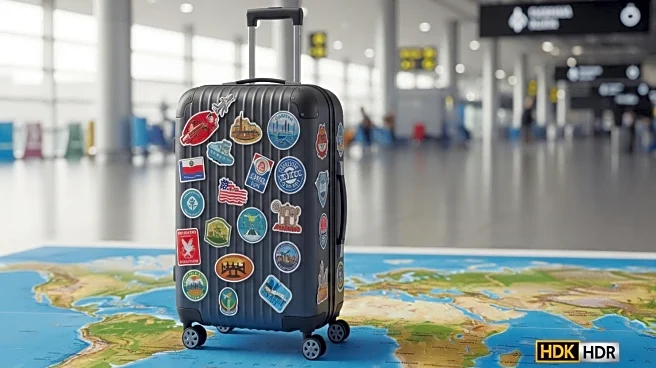What is the story about?
What's Happening?
The travel industry is recognizing a significant opportunity with independent bookers, a segment that accounts for approximately $11 billion of Australia's leisure travel spend annually. These travelers prefer to build their own itineraries, mixing flights, hotels, and tours across multiple platforms. Despite their substantial market share, independent bookers remain underserved due to the lack of a single platform that caters to their needs. The industry currently operates with two main revenue streams: agent networks and online booking channels, both of which fail to fully accommodate the flexibility and control desired by independent bookers.
Why It's Important?
Independent bookers represent a substantial portion of the travel economy, yet they are often overlooked by traditional travel models. Addressing their needs could unlock significant revenue potential for travel companies willing to innovate and provide more flexible, integrated booking solutions. This segment's preference for self-service and control over their travel plans suggests a shift in consumer behavior that could drive changes in how travel services are offered. By catering to independent bookers, companies can tap into a lucrative market and enhance customer satisfaction and loyalty.
What's Next?
Travel companies are likely to explore new technologies and platforms that offer greater flexibility and integration for independent bookers. This may involve developing tools that allow seamless combination of various travel components, such as flights, accommodations, and tours, into one cohesive itinerary. As the industry adapts to meet the needs of this segment, travel agents may play a crucial role as a fallback option when online tools fall short. The challenge lies in overcoming technical complexities to provide reliable, efficient solutions that meet the expectations of independent bookers.
Beyond the Headlines
The rise of independent bookers highlights broader trends in consumer behavior, including a desire for personalization and control in travel planning. This shift may lead to increased demand for innovative travel solutions that prioritize user experience and functionality. As companies strive to meet these demands, they must also consider the implications for data privacy and security, ensuring that new technologies protect consumer information while enhancing the travel experience.














